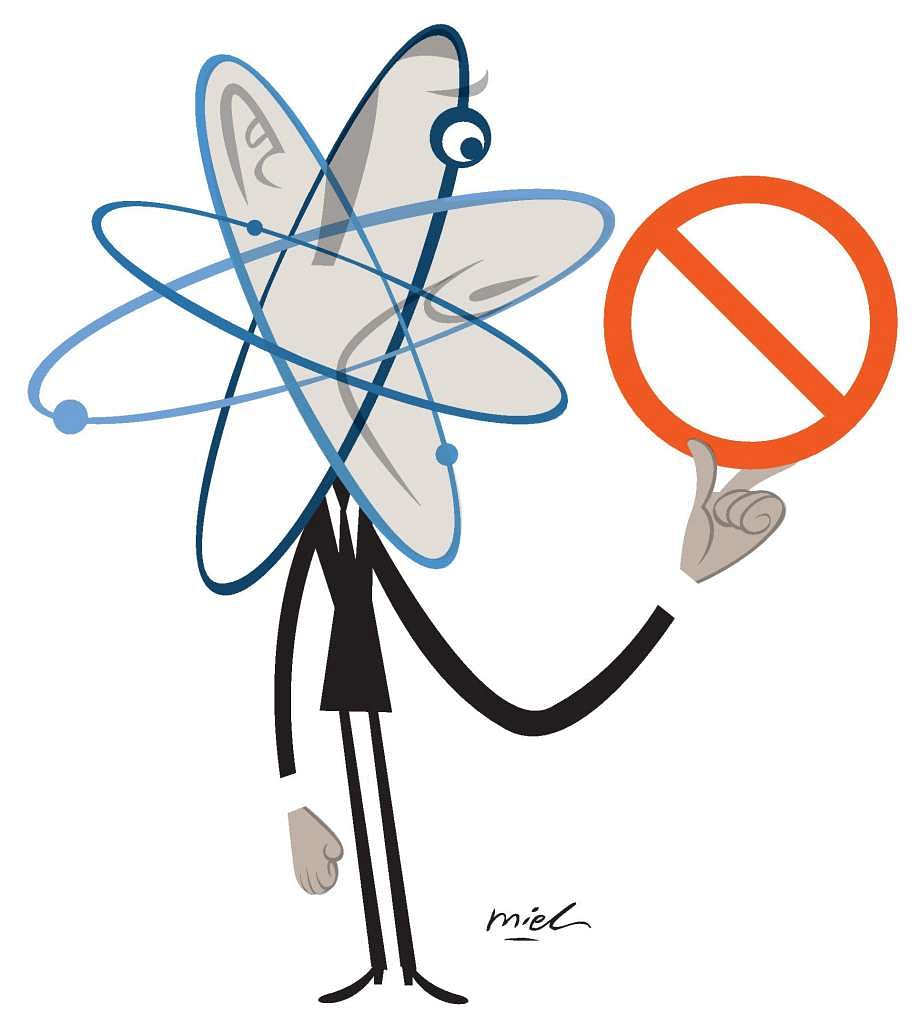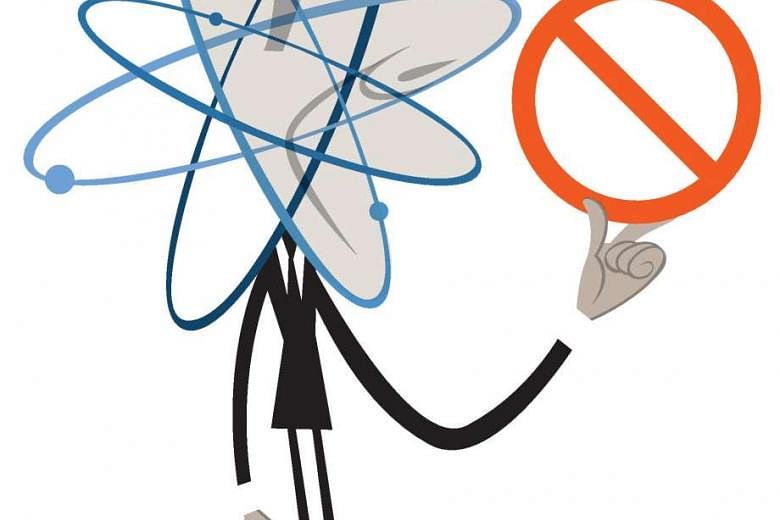Mr Barack Obama began his presidency with a dramatic gesture which captured the world's imagination and won him the Nobel Peace Prize.
Speaking in Prague in 2009, he declared that the United States would work towards abolishing nuclear weapons. Since then, for over seven years, nothing has happened. Now that might be about to change.
The Washington Post reported that deputy national security adviser Ben Rhodes told the Arms Control Association on June 6: "As we enter the home stretch of the Obama presidency, it's worth remembering that he came into office with a personal commitment to pursuing diplomacy and arms control.
"I can promise you today that President Obama is continuing to review a number of ways he can advance the Prague agenda over the course of the next seven months. Put simply, our work is not finished on these issues."
There have been no official announcements, but well-orchestrated press reports say that in his last months as president, Mr Obama wants to take the first concrete step towards nuclear abolition by reducing America's own dependence on nuclear forces.
He could do that by declaring officially that the US will never use nuclear weapons unless an adversary has used them first.

And that is a big deal. It may or may not bring us a step closer to abolishing nuclear weapons, but it would certainly be a big blow to the US' strategic credibility in Asia.
All the world's other major nuclear powers have made what is called a "no first use" (NFU) declaration decades ago, which in effect means they have promised not to start a nuclear war.
But not the US. During the Cold War, far from promising not to start a nuclear war, Washington always threatened to use nuclear weapons first to stop the Soviet Union's massive conventional forces overrunning Western Europe.
Since the Cold War ended, many people have argued that Washington no longer needs to make this kind of threat.
They say that US conventional forces are now so overwhelmingly powerful that they could easily deter any adversary without threatening nuclear escalation.
Back in 2009, Mr Obama seemed to agree with this argument, and he was widely expected to make an NFU declaration which would take that threat off the table. But many of his advisers disagreed, and they talked him round, and when his major Nuclear Posture Review came out in 2010, it stopped far short of an NFU declaration.
That left his historic Prague initiative dead in the water.
Mr Obama could not credibly argue to abolish nuclear weapons while his own government, alone among the major nuclear powers, still threatened to start a nuclear war by using them first to defeat a conventional attack.
The key reason that Mr Obama's advisers, like most of Washington's foreign policy "establishment", thought the US should hang on to this threat was the attitude of US allies, including South Korea and Japan.
They said an NFU declaration would seriously undermine allies' confidence in US security guarantees because leaders in Tokyo and Seoul did not buy the argument that US conventional forces were now so strong that nuclear forces would never be needed.
On the contrary, US allies understand all too well how much the conventional forces of US rivals like China have improved in recent years. They agree with many analysts and policymakers in the US itself, where China's growing air and naval capabilities have prompted a major rethink of US strategy because it is a much tougher adversary now than it was even 10 years ago.
In fact, there is no real doubt that defeating China in a major war without using nuclear forces is becoming harder, not easier.
That seems to many people a decisive argument for the US to keep the threat of nuclear escalation firmly on the table.
But it is not that simple.
America's threat of nuclear escalation only works to deter an adversary if the adversary believes that Washington's threat is serious, not a bluff. And the problem is that the threat is not credible against any adversary - like China today and perhaps North Korea in future - that has nuclear weapons of its own that can target the US.
In a conflict over the Senkaku/Diaoyu islands, for example, the US could not credibly threaten to use nuclear weapons against Chinese conventional forces, because China could so easily and credibly threaten to retaliate by launching a nuclear strike against the US.
Back in the Cold War, US threats to use nuclear weapons first were credible despite the risk of Soviet nuclear retaliation because the stakes were so high. Everyone believed that the US would be willing to risk a nuclear attack on itself to keep the Soviets out of West Berlin.
But no one believes America today would accept the same risks to defend Japan's claims to the Senkakus, or even over Taiwan.
So any US threat of nuclear escalation would be trumped by China's counter-threat of nuclear retaliation.
Mr Obama probably understands this, which helps explain why he wants to think again about making an NFU declaration. And this time, he will be harder to dissuade.
His tough years in office dealing with issues like Libya and Syria have made him sceptical about the received wisdom of America's formidable foreign-policy establishment, and he is less likely to listen to their arguments now than he was back in 2010.
But that does not mean the experts who talked him out of NFU back then were wrong about the impact on US allies. A declaration that the US would no longer threaten to use its nuclear weapons to defend them against a conventional attack would erode their confidence because it would implicitly acknowledge that the threat was not credible.
Combined with the knowledge that the US could no longer easily win a conventional war against an adversary like China, this would be a big blow to America's standing as the leading strategic power in Asia and the guarantor of its allies' security.
The reality is that while it might make perfect sense in the light of new strategic realities, and perhaps even help to move the world towards nuclear disarmament, an NFU declaration would weaken America's standing in Asia by amplifying the message that it no longer has the will to stand up to China.
That message is of course already being heard loud and clear this year from the US presidential campaign trail, and not just from Republican candidate Donald Trump.
Democratic candidate Hillary Clinton's categorical repudiation of the Trans-Pacific Partnership shows how strongly the political wind is blowing in America against the old orthodoxies of free trade and strong alliances that have guided US foreign policy for generations. No one should assume that Mrs Clinton, if she wins the White House, would reverse an NFU declaration made by Mr Obama over the next few months.
She would be too worried about what that might mean for her chances of re-election for a second term in 2020.
Hugh White is professor of strategic studies at the Australian National University in Canberra.



